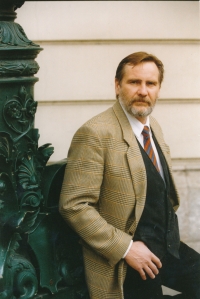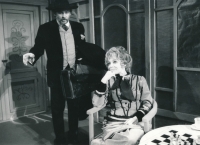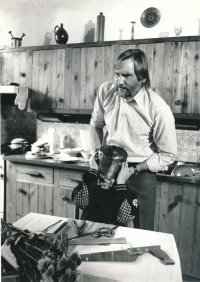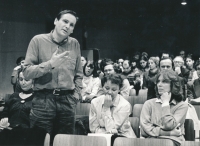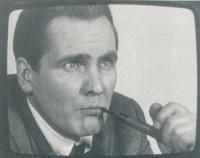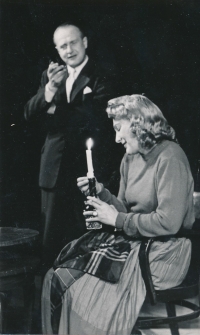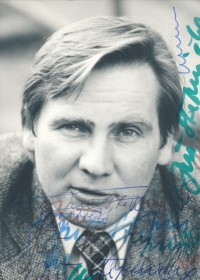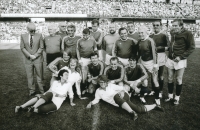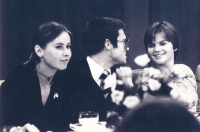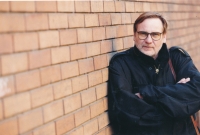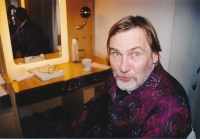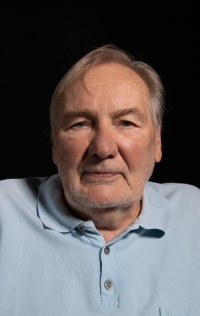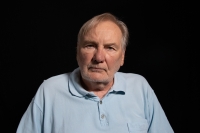Artists helped me overcome tough times

Download image
Jiří Štěpnička was born on 16 April 1947 in London where his mother, famous pre-WWII Czechoslovak actress Jiřina Štěpničková, was staying at the time. She was married to his father, painter Jan Samec whose surname he initially shared. They lived together quite briefly. The mother decided to secretly leave the country in 1951 further to a letter from film director František Čáp who had emigrated. It turned out to be a trap – their guide was a State Security officer. Jiří was accompanying his mother. After her arrest, he was placed in a detention home and, after a year and a half, went on to live with his father who was staying with his family in Karlovy Vary. The witness lived a happy childhood there and found it difficult relocating to Prague to live with his mother after her release from prison in 1960. He found a firm footing and support among artists, and acting turned out to be his lifelong vocation. This is how he explains why he accepted the role of communist president Klement Gottwald in 1986 – he was concerned of losing his job had he refused. He never re-established a close relationship with his mother; she was rather critical of him and they did not see each other for years. Jiří Štěpnička has been a member of the National Theatre Drama Troupe ever since 1974. After 1989, he officially changed his surname to Štěpnička, having used it previously as his stage name. As an actor, he played countless theatre, film, and radio roles. He is also a premier voice-over artist and has won the František Filipovský Award in the field. He won the Thalia Award for drama in 2010. At the time of recording in 2022, he was living in Prague and working.
